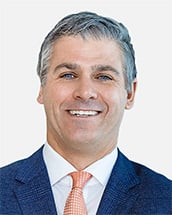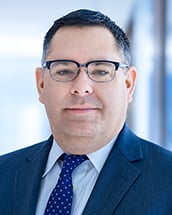In brief
Yesterday, in Snyder v. United States, the Supreme Court, in a 6-3 decision authored by Justice Kavanaugh, significantly limited the federal statute criminalizing gratuities in state and local jurisdictions. Snyder, a mayor, awarded a USD 1.3 million contract and received a USD 13,000 payment from the benefiting company. The Supreme Court ruled that the relevant statute, Title 18 section 666, applies only to bribes paid or promised before an official act, not after-the-fact gratuities. The dissent, led by Justice Jackson, criticized this narrow interpretation. Post-Snyder, the government must provide stronger evidence of a corrupt agreement made before the official act, affecting future prosecutions and potentially influencing Foreign Corrupt Practices Act (FCPA) cases.
In more detail
Last week, in Snyder v. United States, a 6-3 opinion written by Justice Kavanaugh, the United States Supreme Court significantly curtailed the federal statute criminalizing bribes and other “corrupt” payments to state and local officials. Snyder, a mayor of a small town in Indiana, awarded a USD 1.3 million contract to a local truck dealership to purchase three garbage trucks and subsequently received a USD 13,000 payment from that dealership which the government said was a corrupt and unlawful reward for having the contract steered to the company in the first place.
Snyder was convicted under Title 18 section 666, which makes it a crime for a state or local official to “‘corruptly solicit, accept, or agree to accept anything of value from any person intending to be influenced or rewarded.” The conviction was upheld by the 7th Circuit. The Supreme Court reversed the conviction, holding that section 666 applied solely to “bribes that are promised or given before an official act,” not giving what the Court characterized instead as an after-the-fact “gratuity” given at a later time. The dissent, written by Justice Jackson, criticized the majority’s narrow reading of section 666 as an “absurd and atextual reading of the statute…only today’s Court could love,” and inconsistent with the facts at trial laying out what appeared to be a “rigged” bidding process.
The majority and dissent opinions seemed to be talking about two different cases. To the majority, an after-the-fact payment of USD 13,000 to the mayor by the truck dealership was a “gratuity,” and as written by the majority, section 666 “is a bribery statute and not a gratuities statute” and to expand it to criminalize gratuities “would significantly infringe on bedrock federalism principles.” To the dissent, it was the reward to the mayor from an extensively corrupted bidding process engineered by the mayor. While the dissent argues that the language of section 666 clearly applies to after-the-fact gratuities, or “rewards,” for corrupt acts, the majority held that there must be evidence of an agreement before the act for a defendant to have exposure under this statute.
What is clear from the Snyder decision is that the government, in cases involving alleged bribery by local and state officials, will now have to work harder and gather convincing evidence to establish, beyond a reasonable doubt, a corrupt agreement and offer to the government official prior to the official action taken. It may mean cases that would have been prosecuted pre-Snyder may be left to state and local authorities; or, that the government will pull the levers it can to develop this evidence, including by applying increasing pressure on cooperating witnesses or digging deeper to gather more convincing evidence of the corrupt agreement — documentary or otherwise — to establish when it was entered.
It would be wrong, however, to believe Snyder provides a complete safe harbor. To the extent that the government can prove a corrupt state of mind prior to payment, even an after-the-fact payment may transform a “gratuity” into a “bribe” prosecutable under section 666. It is also unclear what impact, if any, the Snyder decision may have on other statutes dealing with bribes and payment to government officials, such as the Foreign Corrupt Practices Act. That will be the subject of a later note by Baker McKenzie. However, one immediate observation we have is that Snyder will drive prosecutors to focus on developing evidence of a corrupt agreement existing before the taking of the official act by the government official. This requirement exists in the text of the FCPA and Snyder will likely serve to further articulate that requirement in FCPA investigations. As a result, we also expect that in assessing the thoroughness of any internal investigation into potential FCPA matters, prosecutors will expect companies to have conducted a searching review into whether such an agreement existed, and when it was made.
For today, at least, the holding can perhaps be best understood as another in a long line of recent Supreme Court opinions purposefully limiting expansive readings of federal statutes in state and local public corruption cases.









